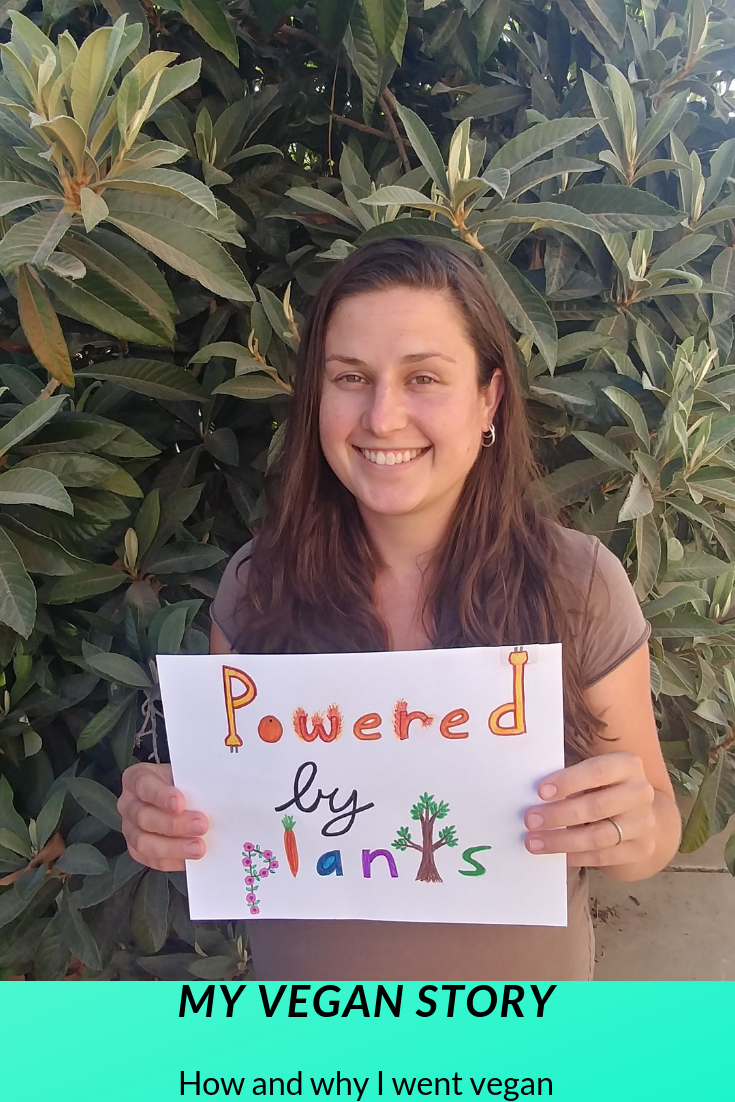
As of the 1st of January 2018 I have been a vegan. If you asked me 12 years ago if I could see myself going vegan in the future I probably would have told you although I greatly admired vegans and the reasons behind veganism that it was not for me. I didn’t think I could do it. People CAN change though, and I have definitely changed in more ways than one since then. This is my own personal experience in my transition to veganism.
Childhood to Teenager: Grossed out by meat but addicted to cheese
Every since I was a child, I have never liked meat or dead things for that matter. It just grosses me out. Okay, it more than grosses me out, dead things straight up freak me out. Just ask my family. Once I was old enough to realize that meat equaled something that was dead it was pretty unappetizing. I would still eat it begrudgingly, although I never ate very much, because I thought it was good for me and essential to be healthy. It was a necessary evil in my eyes. As I grew to be a teen, I found myself eating less and less meat, because it just really wasn’t my thing. Even with In-n-out burgers (which were my favorite fast food burgers at the time) I found myself not being able to finish the meat patty. I wish I could say the same about dairy products. Cheese and cheese products were my kryptonite (just keeping it real). Eggs and yogurt were never something I got super excited about and although I did like ice cream I found I enjoyed dairy-free fruit sorbets much better. I have never liked cow’s milk because I have had allergy issues with it since I was young and have drank plant based milks as long as I can remember. BUT CHEESE. WHY MUST IT BE SO ADDICTING? Oh yeah, the casein protein in it (1). That being said, despite my love of cheese, I DID give up all dairy products (along with wheat and sugar) for about a year to a year and a half due to health and allergy issues when I was around 12 to 13 years old. I think I did cheat and splurge occasionally, but for the most part I was faithful to avoiding dairy, wheat, and sugar. I guess you could say I was a bit of a vegan in the making due to my food preferences and health/allergy issues.
Age 16: My first official introduction to veganism

When I was around the age of 16, I was really into this band called The Veronicas. This caused me to want to look up information about the twin sisters that fronted the band, because why not? I was a teen with time on my hands. Somehow I came across a vlog of theirs on Youtube where they made a vegan meal they both loved (I think it was vegan tacos with black beans). In the video, they shared that they were vegan and shared what being vegan entails. This was my first official introduction to veganism. I was shocked that people were able to give up cheese (and other animal products) AND I also felt tremendous awe for the choice that they made. Deep inside, I envied their resolve. I wanted to do it too. But, Doritos and nachos were calling my name, drowning out what resolve and desire I had to go vegan. Regardless, the seed had been planted. I was fascinated by the vegan lifestyle and found that the reasons people went vegan deeply resonated with me.
P.S. For anyone wondering what the Veronica’s vegan video was, I cannot find it for the life of me. It WAS on Youtube, but it was from over 12 years ago so who knows what happened to it or if I was even searching for it with the right key words.
Age 16 ½: I can’t handle death
Shortly after finding out about veganism, I went to an all-girls training program in Texas that summer called “Skills Training in Emergency Preparedness” or STEP for short. Basically, I would say it was kind of like a bit of a boot camp in that we were stretched beyond what we thought we were capable of in many ways (physical, emotional, mental, and spiritual). One of the ways in which we were stretched was having to kill our own dinner. This was basically one of the worst experiences of my life. Okay, I am exaggerating some, but hopefully you get my point. I really hated it. Although I didn’t have to participate in the killing of the chicken that was to be the main course that fateful evening, out in the woods where we would have to cook it over a fire that we had labored over starting with mere flint stones (because using matches and lighter fluid were ‘cheating’ and would ruin the whole survival preparedness training), I DID have to watch the death of the chicken. Of course, the brave volunteers that killed it didn’t simply chop it’s head off. No, no, we had to watch it be held upside down and have its throat slit while the blood slowly drained out with the chicken freaking out towards the end of the 10 to 20 minute ordeal when it realized it’s dying. We don’t want blood in our meat, the leaders told us, as if to make us feel better about having to witness such a horrific death. I think I cried. I’m not really sure. I was so shocked and horrified. After that, I wasn’t able to eat for a full 24 hours. Considering I am essentially a walking stomach and pretty much always down to chow, this was a pretty impressive accomplishment. Honestly though, it wasn’t that hard after what I had witnessed. I just didn’t feel hungry after that. I felt like I was going to throw up. I don’t know how people that raise and kill their own animals to eat do it. I just don’t. Anyways, my hunger strike would have gone longer, but due to the physical exertion from many of the activities at the training program I DID finally have to eat. Plus, some people were pressuring me to eat saying I was going to faint and what not. Once I ate again, my meat consumption continued to drop for a time. I seriously contemplated going vegetarian. But, I was under the impression still that meat was necessary to be healthy to get enough protein and all that jazz.
Age 20: Nutrition 101 and the abuse of animals at factory farms


When I was 20, I took a Nutrition 101 course at the college I was attending. In addition to briefly studying vegan, pescatarian, and vegetarian diets and the health benefits and supplementation required with such diets, we watched the documentary Food Inc. in that course. If you haven’t seen that documentary, I strongly suggest you watch it (link). Oddly enough, this isn’t a vegan documentary BUT it does go into animal welfare and the abuses that occur in factory farms. The main points from the documentary that were most prominent to me involved animal welfare, worker rights, and consumer safety. In regards to animal welfare, I found many things common in the factory farming situation (which produces most of the meat for the United States) very disturbing and disgusting. In most factory farms, chickens never see the light of day and are in such crowded conditions they can barely move. Cows are knee deep in manure and have holes drilled in their sides (they are called cannulated cows and don’t look it up if you are currently eating or just ate) so that farmer’s and researchers can check on their digestion. This is mainly because of digestive issues related to being fed a corn diet. E-coli is rampant among cows that are corn fed, since it is not their natural diet and corn is hard for their bodies to digest. If a cow is on a grass diet for a mere 5 days, it is able to shed 80% of the e-coli in it’s body. However, this is apparently too simple of a solution for the industry, so instead the food industry disinfects meat with ammonia before sending it off to the market. In turn, this issue of not feeding cows grass effects consumer safety, since there are STILL many recalls of beef due to contamination, despite ammonia disinfecting efforts. All the people that have died or gotten extremely ill due to factory farms not feeding cows what they naturally eat merely for more profit is despicable (corn is a lot cheaper than grass which is why they feed the cows corn). As for the worker’s and farmers, they are subjected to low wages and dangerous working conditions. Big factory farms often use illegal immigrants since no one else is willing to do the work (that should give a big clue as to the working conditions at factory farms). Due to heavy antibiotic use with factory farm animals, many animal farmers and factory farm workers, due to their constant exposure to antibiotics through the animals have become allergic to all antibiotics. At slaughterhouses, workers often end up covered in urine and blood. As a result, they often get infections from the animals, despite personal protective gear. After watching Food Inc., I no longer wanted to eat red meat for ethical and health reasons. I stuck to that, aside from the occasional In-n-out burger or taco with ground beef from Del Taco. However, seeing the animal suffering of fowl, pigs, and cattle alike in factory farms really disturbed me. I was sickened by how the big factory farms treated innocent animals. Yes, they were just going to end up on someone’s dinner plate, but shouldn’t they at least have a decent life and be treated with respect while they were alive? Despite my strong feelings in support of the ethical reasons to go vegan, I wasn’t entirely convinced that veganism was doable for me personally (because, you know, CHEESE!). Plus, I wasn’t sure if a diet without any animal products was truly sustainable without heavy supplementation and careful diet planning. I realize now those were just excuses (SPOILER ALERT: It really isn’t that hard).
Age 22 1/2 : My son is allergic to dairy and eggs

In 2013, it was discovered that my oldest son was quite allergic to dairy and eggs. How did we find out? He gets covered in hives, throws up, and has diarrhea. Dairy and eggs also cause his eczema to flare up. It’s pretty down right awful. We did later on have blood tests and skin pricks tests done as ordered by his pediatrician. The results demonstrated severe allergies to dairy and eggs. He can’t even have lactose free products since he is allergic to the casein protein in dairy. This caused me to be forced to find vegan alternatives for dairy or egg based dishes. Through this, I started learning more about vegan substitutes, which further paved the way for my own full transition to veganism. For example, I found out what stores carried vegan cheeses. I discovered what can be used in place of eggs in baked goods, such as ground flax seed or applesauce. I became vigilant in reading ingredient labels and quickly discovered what was dairy and egg free and what was not. In some ways I was prepared, since I already made my own almond milk and my family mainly drank plant based milks (although sometimes I would use cows milk in main dishes or buy it for my husband who liked it with cereal). However, I definitely had a LOT to learn in regards to finding dairy and egg free recipes. I remember many nights (when my kids were asleep and in bed) searching the internet for recipes that would be safe for my oldest son and hopefully enjoyable for the rest of the family too. Obviously, it’s awful my son has such extreme allergies to dairy and eggs BUT at the same time it was really pivotal in compelling me to discover vegan alternatives. It helped me realize that there were many more vegan options than I had previously thought.
Age 25: My 3rd Nutrition class highlighted the health benefits of veganism

When I was 25, I took a family nutrition class. It was the third nutrition class I took at the college I was attending, with my second being a nutrition class specifically for learning about the nutritional needs of children 8 years old and younger. During this nutrition class, one of my classmates shared that she was vegan and how much it had helped her health. Plus, she strongly believed in the ethical reasons behind going vegan, expressing her joy in being able to help save animals by choosing to be vegan. We watched the documentary Forks over Knives in this class, which goes into the health benefits of veganism/plant-based living and how to be a vegan without a bunch of supplements. To sum the movie up in one sentence, Forks over Knives examines the claim that plant based whole foods can prevent and reverse cancer, heart disease, and other degenerative diseases prevalent in Western society. It features many plant-based doctors and studies on veganism that validate this claim. This is a documentary I highly encourage everyone to watch (link). Once again, I felt the desire to become vegan but talked myself out of it, thinking it would be too hard. I didn’t think I had the willpower for such a lifestyle change, although I DID realize that getting enough protein and all the other concerns people often have when it comes to vegan diets weren’t valid. After the documentary, we went over the various protein sources (animal vs. plant based) and discussed the pros and cons of each. The pros of plant based protein definitely outweighed those of animal protein. In addition, as had been done in previous nutrition courses I took, we went over what plant based foods you would pair together to ensure amino-acid needs were being fulfilled. We even were quizzed on such knowledge, as was also the case in my Nutrition 101 course. At this point, I had the information I needed about veganism. The willpower just wasn’t quite there yet.
Age 25 ½: The environmental impact of animal agriculture
In the Spring of 2016 I took an Environmental Science course. Strangely enough, veganism came up in that class. I had heard the ethical and health arguments in favor of veganism, but I hadn’t heard much about the environmental aspect. I learned that the amount of water required to grow animal proteins versus plant based protein was considerably higher. With many groundwater basins being drained to the point of collapse, eating a diet that required less water to grow made more sense to me. Animal agriculture also contributes greatly to pollution due to the lack of proper space for the disposal of feces and animal waste. The pollution from animal waste has been a major factor in creating dead zones in the ocean. In addition, it is the main reason for the destruction of forests and the rainforest, which further burdens the air quality, due to a reduced amount of oxygen from the cutting down of trees. When confronted with such truths, I found myself consciously working to reduce the total amount of animals products I consumed.
Age 26 ½: Going vegetarian/pescatarian
One fateful day, in February of 2017, I was eating some chicken, and I realized how much I really did not like meat. I thought to myself, “Why am I forcing myself to eat this when I don’t want to?” Right then and there, I no longer ate meat, except for wild caught Alaskan salmon once in awhile, because I was certain (at the time) that was the best way to get Omega 3’s DHA and EPA essential fatty acids. Honestly, I haven’t missed eating meat at all. I didn’t enjoy salmon, but I ate it begrudgingly for my health. During this time, I had a renewed interest in veganism. I started watching vegan YouTube channels to learn more about it. I watched vegan ‘what I eat in a day’ videos as if my life depended on it. I learned more about the ethical reasons to go vegan. I considered watching vegan videos my ‘chill time.’ In April, a Facebook friend announced that she, her husband, and her daughter had been vegan for a year. She stated her main reasons for going vegan (and staying vegan) were ethical, environmental, and health related. I found such a public proclamation to be quite inspiring, especially in that they had lasted a year and were still loving being vegan. Furthermore, she has her Bachelor’s in Nutrition, which demonstrated to me that she definitely knew what she was talking about when it came to the health reasons for veganism. That summer, I met and conversed with some vegans at a birthday gathering for a music professor we had taken music courses from at the same college. Of course, I picked their brains on going vegan and on what tips they had (specifically what vegan cheeses they suggested). All of these events started to normalize veganism in my mind. I realized it wasn’t some highly unattainable ideal but rather a lifestyle decision that even the average person could achieve. I realized that there WERE healthy and normal people out there who were living the vegan life and that it really wasn’t as challenging as I thought. By October of 2017, I gave up fish, when I found out about the high amount of Omega 3’s DHA and EPA essential fatty acids are also in flaxseed and algae. Algae is how the fish get their Omega 3’s so I decided to take an algae oil supplement so that I could get the Omega 3’s goodness right from the source. Flaxseed (ground or oil form) is also a great source I discovered. Please note if you go the flaxseed route, make sure it is in ground or oil form. If it’s whole and unground, your body isn’t able to digest the hull around the seed, causing it to be pooped out (to put it bluntly) since it is insoluble fiber in that form (2). I started going up to a week at a time being fully vegan. I noticed my constant post nasal drip reduce. I also found I had more energy and improved health in other aspects. In addition, I just felt really good knowing I was making a difference for the animals and the environment. Finally, as you already know, by January of 2018 I made the decision to be a vegan full time. I can honestly say, although I still sometimes have cravings for cheese (but they are lessening as time goes on), the benefits have been so worth it. For anyone wondering about the protein and iron levels of my blood, they are actually right in the perfectly normal range for pregnancy (I’m currently nearly 8 months pregnant). Honestly, this is amazing to me because with my previous 3 pregnancies, this was NOT the case despite being a meat and dairy eating person.
So, that’s my vegan story. If you are considering veganism, I hope it inspires you to give veganism a try. Even if you AREN’T considering veganism, if you had doubts about it before, I hope my story helps ease those doubts. If you’re simply curious or want to learn more, there are plenty of links below for you to check out so you can learn more about this topic yourself.
P.S. Both of the documentaries I suggested are on Netflix. Look them up and watch them if you have Netflix. You can also purchase the DVD’s on Amazon if that is of interest to you.
Here are the Amazon links:
Even if you don’t want to go vegan, I think it is important for every consumer to know what exactly is on their dinner plate and how it got there. Become educated about what you are eating and what effect it has on the planet and the animals.
Links to information I provided in this blog post:
Addictive components of casein protein:
https://www.forbes.com/sites/michaelpellmanrowland/2017/06/26/cheese-addiction/#22e515223583
http://www.onegreenplanet.org/natural-health/casein-dairy-protein-and-your-health/
Documentaries:
Food Inc. website link (also on Netflix)=http://www.takepart.com/foodinc/index.html
Forks over Knives website link=https://www.forksoverknives.com/the-film/#gs.Flkg9Zo
Nutrition Textbook:
Nutrition,Concepts and Controversies 11th edition
Flaxseed whole vs ground:
https://www.livestrong.com/article/382095-can-flax-seeds-be-eaten-whole/
Flaxseed benefits (Omega 3’s):
https://www.healthline.com/nutrition/benefits-of-flaxseedssection7
https://www.webmd.com/diet/features/benefits-of-flaxseed#1
Algae oil information:
http://www.berkeleywellness.com/supplements/other-supplements/article/algal-oil-omega-3s
If you choose to supplement your diet with algae oil supplements, be sure that whatever supplement you choose contains good amounts of both EPA and DHA, as some don’t. By that, I mean some contain little to no EPA, depending on the algae source used.
Environmental impacts of animal agriculture:
https://www.downtoearth.org/go-veggie/environment/top-10-reasons
https://www.cnn.com/2017/04/08/opinions/go-vegan-save-the-planet-wang/index.html
Ethical reasons to go vegan:
https://www.theguardian.com/commentisfree/2012/feb/01/what-is-an-ethical-vegan
https://www.hfa.org/porkIndustry.html
https://awionline.org/content/cattle#dairy-cows
Health benefits of veganism:
https://www.wellandgood.com/good-food/china-study-cheat-sheet-10-things-you-need-to-know/slide/11/
https://academic.oup.com/ajcn/article/89/5/1627S/4596952
https://www.ncbi.nlm.nih.gov/pubmed/27886704
Protein & veganism (how to get enough):
https://www.mindbodygreen.com/0-4771/10-Vegan-Sources-of-Protein.html
https://veryveganrecipes.com/vegan-sources-essential-fatty-acids/
Getting enough nutrients being vegan:
https://www.care2.com/greenliving/12-top-vegan-iron-sources.html
https://www.thespruceeats.com/get-enough-nutrients-on-vegetarian-diet-3376915
http://drlisawatson.com/40-vegan-calcium-sources
https://www.vegansociety.com/resources/nutrition-and-health/nutrients/vitamin-b12
What’s your experience? Have you ever considered veganism or being a vegetarian or pescatarian? Are you currently vegan or vegetarian? What did you think of my story? Please share your story and thoughts in the comments below.



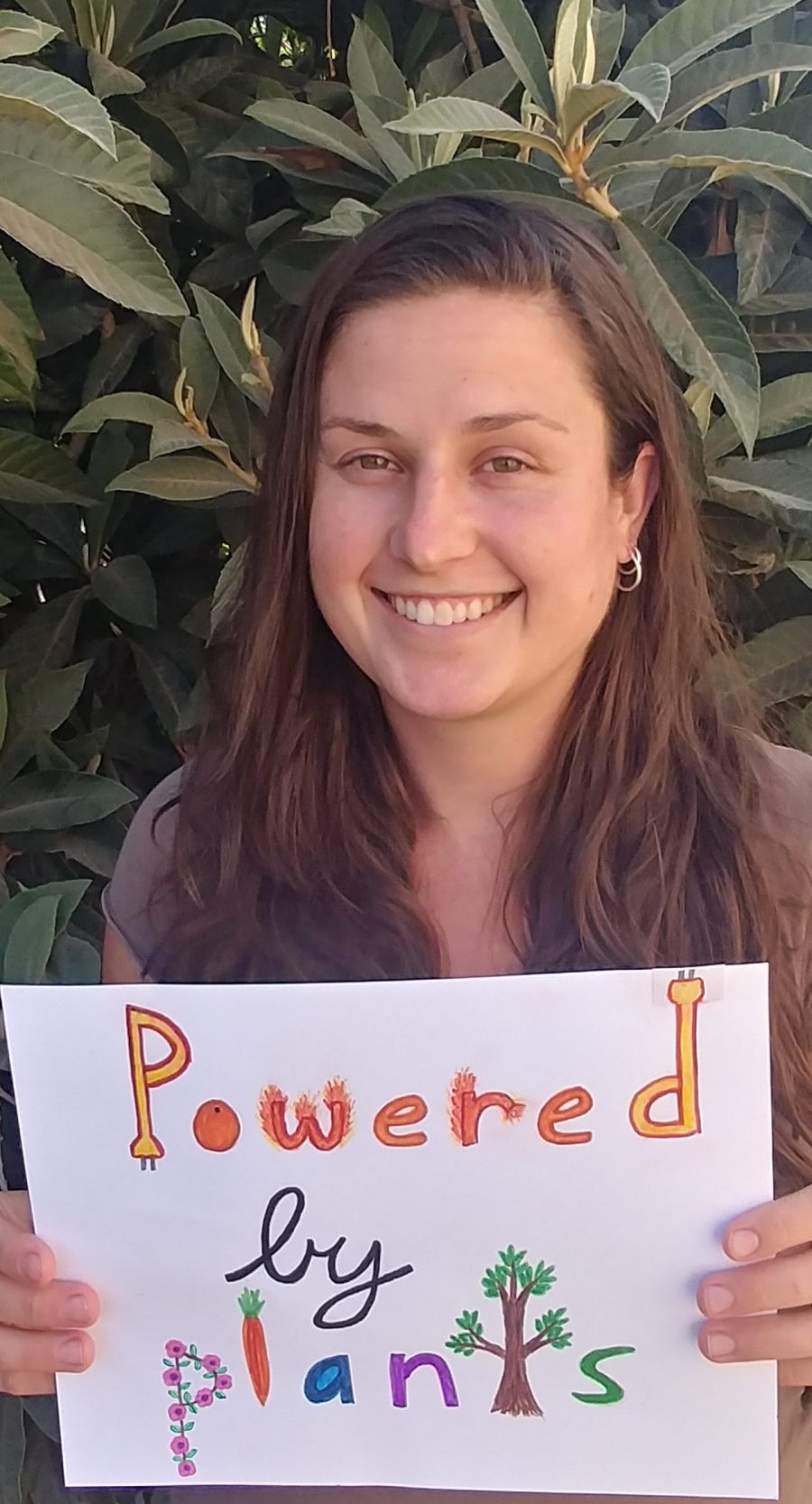


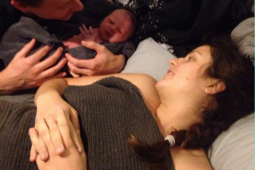

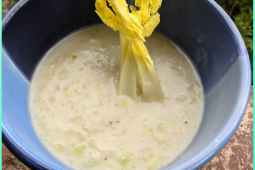
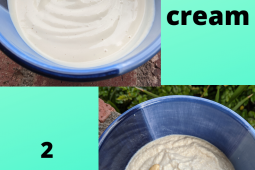

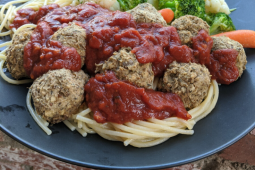
Did you design and color the powered by plants pic yourself?! It’s so cool! 😀
Yes I did! And thank you! =)
So we actually went vegan for about 4-5 years when I was a kid because my kidney couldn’t process everything properly and I was having continuous health issues. We stopped when I was 9 because my great grandparents moved in with us. I don’t remember doing this at all and ironically I love meat & dairy (although I’m not a huge fan of beef and didn’t eat it for a long time). However, I am super picky about where we get our food whether meat, dairy, or fruits/veggies, so it’s all organic/grass fed/free range etc.
I have to say that was an absolutely horrifying and inhumane way for them to slaughter the chicken! We have laying hens and when it comes time it is done so quickly they don’t even know it happened. I still don’t participate in that area though because it gives me the heebie jeebies.
I’m so glad you guys have found this to work for you!
Wow, that is so cool your family was vegan for 4-5 years! That’s awesome it was so beneficial in helping with your health issues that you were experiencing at the time. Thank you so much for sharing your experience and thoughts about this. Also, thank you for the support. =)
Awesome blog! I really enjoyed reading this. Thanks for sharing your experience!
Thank you for taking the time to read it. I appreciate your compliments.
Awesome blog! I so enjoy reading your stories! Thanks a lot for sharing!
Thank you! I’m so glad to hear that.